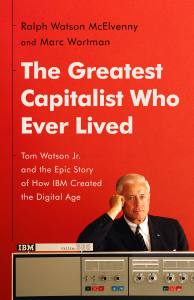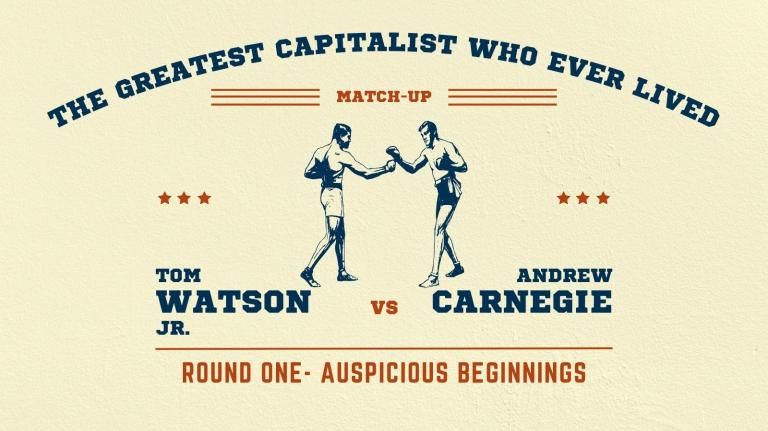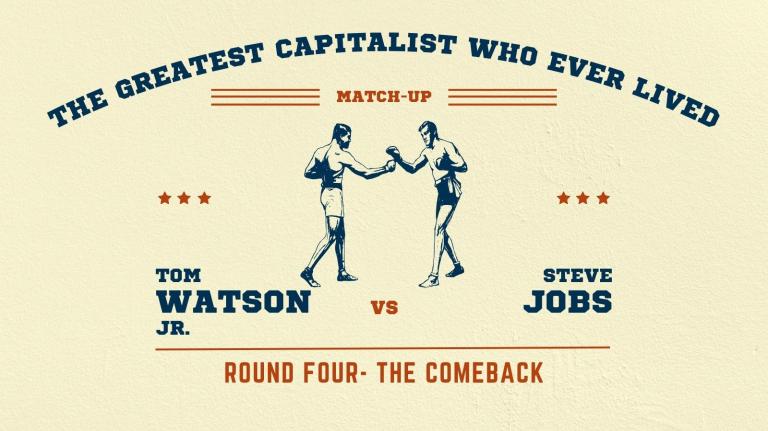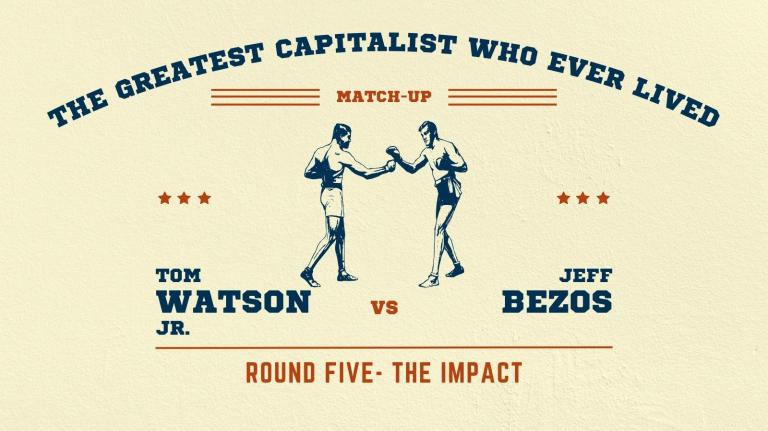The Greatest Capitalist Match-Up Round 2: The Rise
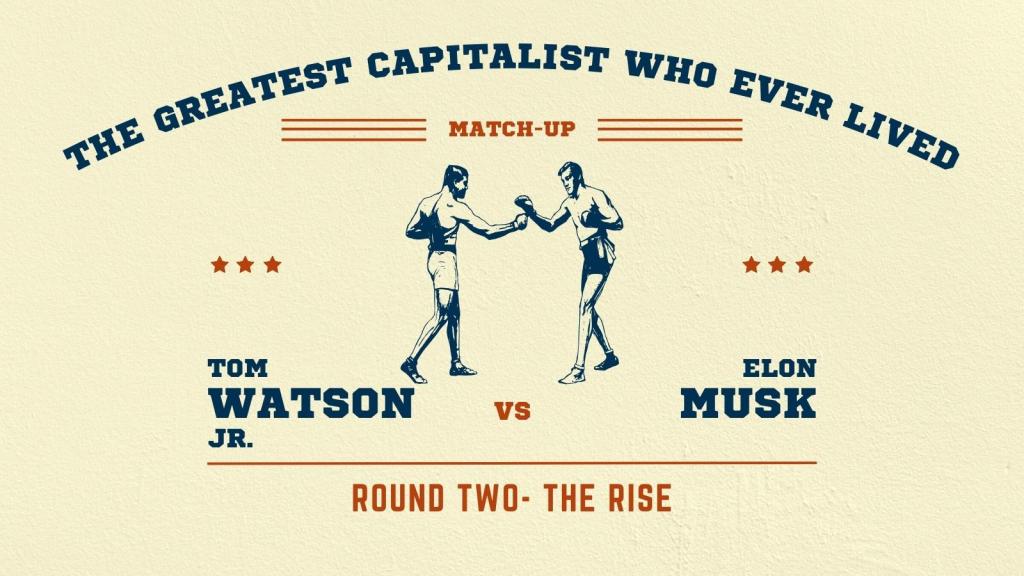
In their latest book, Ralph Watson McElvenny and Marc Wortman explore a bold argument: that Thomas J. Watson Jr., the second president of IBM, was the greatest capitalist who ever lived. McElvenny, the oldest grandson of Watson, and Wortman, an independent historian and freelance journalist, chronicle how Watson undertook the “biggest gamble in business history” and ultimately laid the foundation for the information revolution.
The Greatest Capitalist Who Ever Lived: Tom Watson Jr. and the Epic Story of How IBM Created the Digital Age makes a powerful case, but is it accurate? To find out, we’re stacking Watson up against some of history’s greatest titans of industry. In this five-part mini-series, he’ll compete against Tesla founder and X CEO Elon Musk, Carnegie Steel founder Andrew Carnegie, Amazon founder Jeff Bezos, Apple co-founder Steve Jobs, and Facebook founder Mark Zuckerberg.
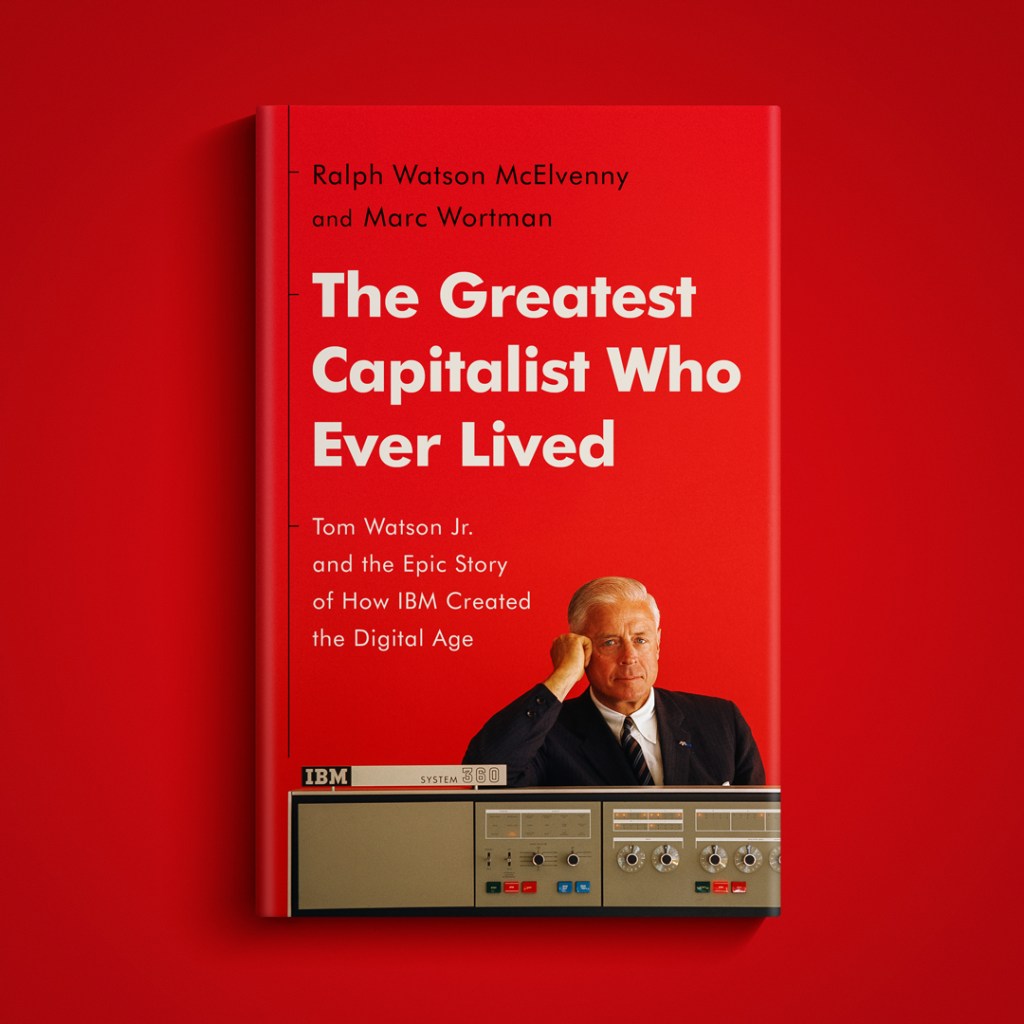
Today, Watson goes toe-to-toe with Elon Musk to decide who had the most impressive rise to fame.
Contender #1: Watson
After Watson served as an Air Force pilot during World War II, he returned to IBM, where his father was still president. The volatile dynamic between the two only grew more intense. As the authors write, “The two headstrong, volatile, often-intemperate men—father and son, boss and still-youthful employee— were bound to clash. Their confrontations would, all too often, devolve into epic, humiliating, nearly uncontrollable arguments that left them shaken and distraught. When they fought, those around them ran for cover.”
Still, Watson proved to be enormously successful. Buoyed by a company that was already dominant in many markets and supported by 150,000 employees, he beefed up the research and development teams, oversaw an unrivaled sales and service force, and commanded an industrial powerhouse that stretched across the globe. Eight years after he became CEO, the company’s annual sales hit $3.3 billion — equivalent to roughly $31 billion today and about four times what the revenue was before his tenure. For a corporation of that size, the growth was unprecedented.
Contender #2: Musk
Around the same age that Watson was in the Air Force, Elon Musk co-founded Zip2, an online business directory similar to the print Yellow Pages. Three years later, he was ousted as CEO in favor of someone with more leadership experience, and the company flourished. In 1999, Musk sold it for over $300 million. Using some of that windfall, he would go on to create X.com, a forward-thinking bank that had no minimum balances and allowed you to move your money digitally.
In 2000, X.com merged with software company Confinity and became PayPal, the secure online payment platform. At first, the prospects looked bleak. The company was named one of the “worst business ideas” of 1999, and Musk was once again booted as CEO — this time, while he was on his honeymoon. But again, Musk proved skeptics wrong. In 2002, he and co-founder Peter Thiel sold the company to eBay for a $1.5 billion stock deal.
The Decision: Watson. Though Musk founded and sold two multi-million-dollar companies before his 30th birthday, Watson grew an already gargantuan company even bigger (and survived a few blowout fights with his father along the way).
The Score: Watson – 1, Other Capitalists – 1
